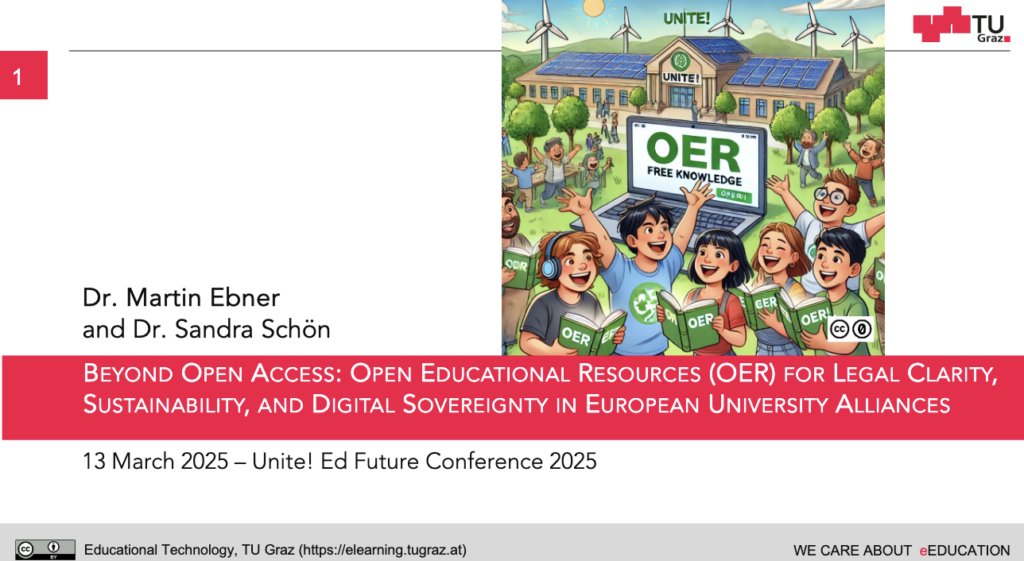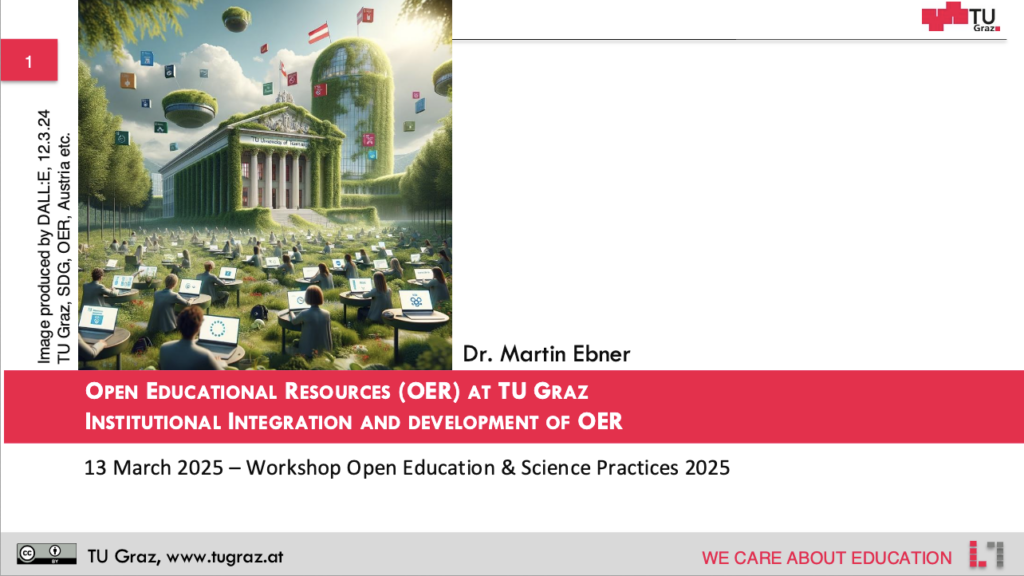Unser Beitrag zu „Offene Bildungsressourcen (OER) und Bildung für Nachhaltige Entwicklung (BNE) an österreichischen Hochschulen“ ist nun veröffentlicht – viel Spaß beim Lesen 🙂
Zusammenfassung:
Die Technische Universität Graz (TU Graz) und die Kirchliche Pädagogische Hochschule (KPH) Wien/Niederösterreich positionieren sich klar im Bereich der Bildung für nachhaltige Entwicklung (BNE) und den Sustainable Development Goals (SDG), insbesondere auch durch den Einsatz von Open Educational Resources (OER). Beide österreichischen Hochschulen haben sich ambitionierte Nachhaltigkeitsziele gesetzt, wie etwa die Klimaneutralität der TU Graz bis 2030, und verfügen über eigene OER-Policys sowie Maßnahmen zur Weiterqualifizierung von Hochschullehrenden in diesem Bereich. Dabei stellt sich die Frage, warum OER für die Erreichung der SDGs – insbesondere SDG 4, das inklusive und chancengerechte Bildung betont – von Bedeutung sind. OER erleichtern den Zugang zu Bildungsressourcen, da sie offen zugänglich und an den eigenen Kontext und Bedürfnisse anpassbar sind, z. B. sind Übersetzungen und Veränderungen erlaubt. Besonders im Bereich einer nachhaltigen Bildung können sie helfen, mehrperspektivische Ansätze zu fördern. Im Beitrag werden Beispiele und Erfahrungen der beiden Hochschulen vorgestellt. Zudem wird überlegt, welche Faktoren sich hinsichtlich des Beitrags von OER zur Chancengerechtigkeit als hinderlich erweisen könnten.
[full paper @ publisher’s homepage]
[full paper @ ResearchGate]
Referenz: Jakob, J., Schön, S., Ebner, M., Gabriel, S., Liebhart-Gundacker, M., Ruffeis, D. (2025). Offene Bildungsressourcen (OER) und Bildung für Nachhaltige Entwicklung (BNE) an österreichischen Hochschulen. In: Leal Filho, W. (eds) Innovative Ansätze für die Nachhaltigkeitslehre und Forschung in der Hochschulbildung. Theorie und Praxis der Nachhaltigkeit. Springer Spektrum, Berlin, Heidelberg. https://doi.org/10.1007/978-3-662-71601-4_13
This is an impactful contributions, methodological rigor, and exceptional novelty in the research field of Open Educational Resources (OER) and Sustainability in education.





